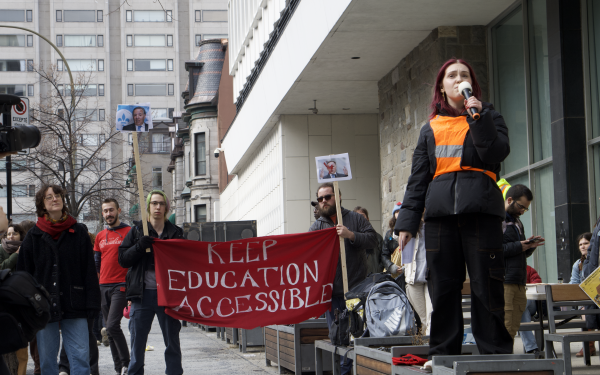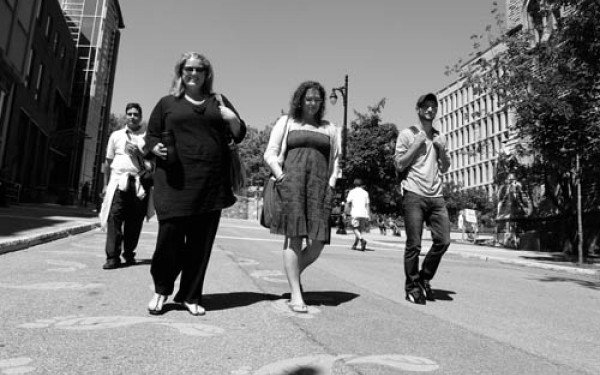Missing MUNACA
McGill’s Non-Faculty Employees Strike
The area in front of McGill’s Roddick Gates were even busier than usual on Sept. 1, as students mingled with members of the McGill University Non-Academic Certified Association’s as they picketed during day one of the union’s strike.
“What we’re seeking here is parity with the other universities in Montreal and the province, if not the entire country,” said MUNACA President Kevin Whittaker. Whittaker cited lack of control over MUNACA pension funds as a key sticking point on which McGill has not budged since negotiations between the union and university began in January. Also at stake is the lack of a proper overtime wage system.
“Every other university has [overtime and weekend premiums] set, and McGill does not,” said Whittaker. “We’re asking for the same premiums that every other university is offering, [which is] 25 per cent for Saturdays, 50 per cent for Sunday, and McGill is not willing to go there. McGill is paying a $200 per year [flat rate], if you happen to do some overtime work. Some do much more, some do less.”
The first day of picketing saw MUNACA workers marching in circles at the corners where McTavish St. and McGill College Ave. intersect Sherbrooke St. Maggie Knight, President of the Students’ Society of McGill University said she had heard of some students joining the picket line, reflecting SSMU’s official support for the non-faculty staff.
“We are supporting the rights of MUNACA workers to strike,” said Knight. “We’re asking the university to work with them to resolve it as quickly as possible as it affects a lot of students. MUNACA workers really make McGill go ‘round as far as students are concerned.”
While Knight acknowledged that the strike would adversely affect students—especially during the first weeks of school when they are most likely to have to use the bureaucratic services that are primarily staffed by MUNACA members—she said that SSMU would stand fast with the union, even if popular opinion turns against them. “We have a policy that was passed by a general assembly a few years ago that mandates us to support workers struggles,” said Knight. “That’s our official stance, but obviously we’re open to hearing all students’ opinions, and we hope to create a space where students can access information to understand the real issues that are going on.”
While Whittaker said that there has been little movement from the university on the key issues, he did remain optimistic there will be a settlement eventually. “I’m very hopeful that there will be. I’m hoping that McGill will understand that the 1,700 members who come in here daily and work for the betterment of the students are a necessary part of this university and should be respected.”
Officials at McGill did not return phone calls by press time.
This article originally appeared in Volume 32, Issue 02, published September 6, 2011.

3web__900_599_90.jpg)
2_1_900_599_90.JPG)



